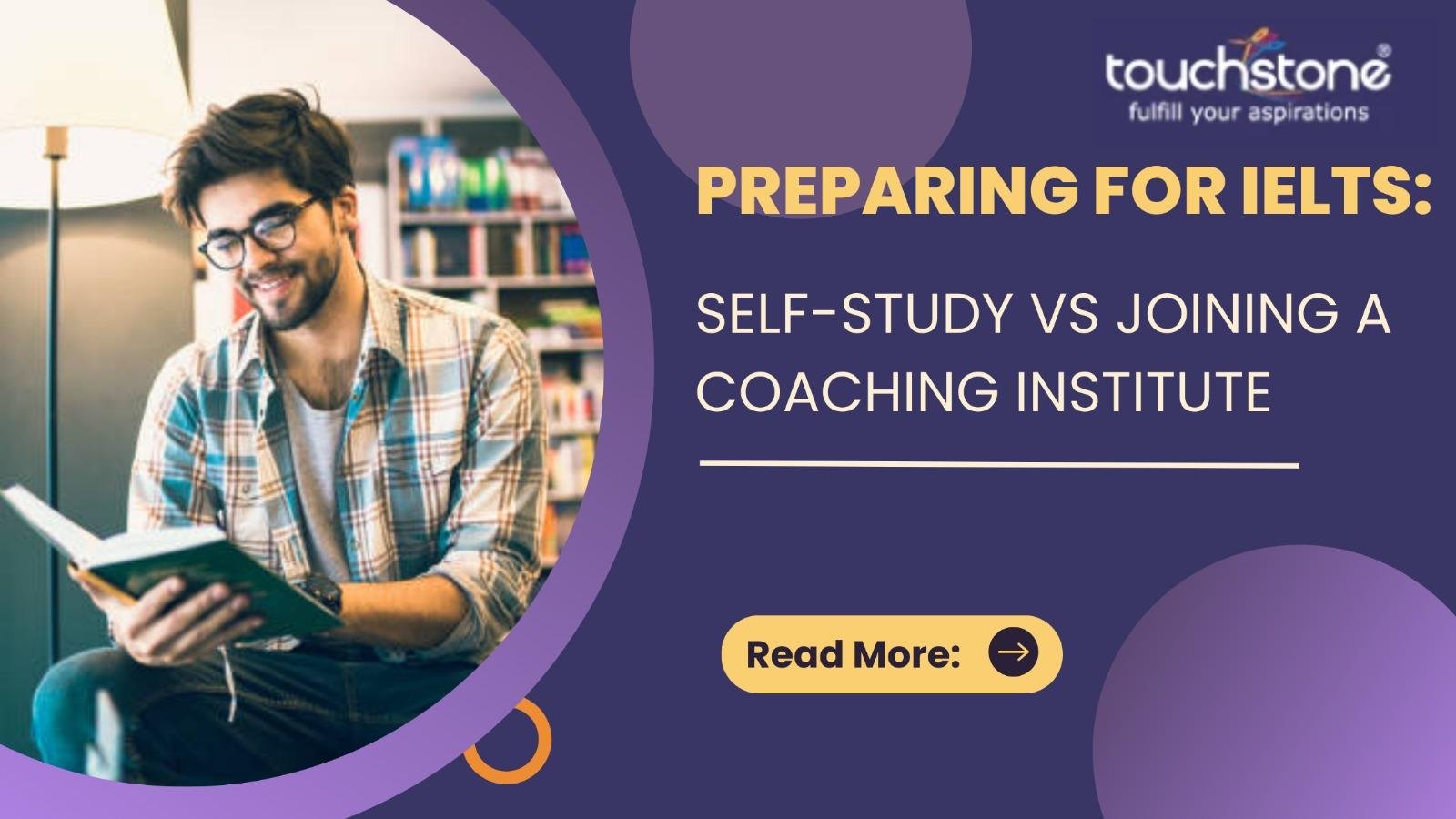The International English Language Testing System (IELTS) is an important factor for thousands of individuals who want to study, work, or migrate to an English speaking country. Accepting its role as a universal standard for English proficiency, the parameters of IELTS call for a strong and effective preparation strategy. However, the path to IELTS success is not one-size-fits-all candidates often deliberate between the independency of self-study and the structure of enrolling in a coaching institute. This in-depth exploration assists IELTS test takers in making an informed choice tailored to their learning requirements.
Importance of IELTS in Language Proficiency
Before consider the merits of each preparation method, it is crucial to understand why the IELTS wants diligent attention. Working as a measure of one’s ability to listen, read, write, and speak in English, the test not only evaluates language skills but also prepares candidates for real-world language use. For many, a high IELTS score is the gateway to the worldwide opportunities, be it a job with an international companies or enrolment in a reputed university.
Understanding this, IELTS preparation is not just an obstacle to be crossed, but a skill-building trail that can make a significantly impact on one’s future.
The Self-Study Approach
Self-study embodies an approach driven by personal effort and discipline. It’s quite popular among individuals who prefer autonomy over their learning procedure. Here’s a closer examination of the self-study route’s advantages and disadvantages.
Pros of Self-Study
Self-Study offers several appealing benefits, such as:
- Flexibility: The ability to set one’s own study hours and adapt the schedule to personal commitments is invaluable. This approach to IELTS preparation is not bound by the strictness of class timings.
- Cost-Effectiveness: In most cases, self-study is less costly than formal coaching. With the right resources, candidates can potentially save a valuable sum.
- Personalized Learning Pace: Self-study permits learners to advance through the material at a pace that suits their understanding, rather than being tie up to a class syllabus timeline.
Cons of Self-Study
Despite its merits, self-study does have its limitations:
- Lack of Guidance: Without a mentor to provide feedback and guidance, students may find it challenging to find out their faults and rectify their weaknesses.
- Self-Discipline Challenges: Not everyone can harness the self-discipline required to study on their own without the external pressures and accountabilities that a course would impose.
- Limited Access to Practice Materials: Coaching institutes often offer a wealth of materials and resources that may be difficult for self-studiers to acquire or afford.
Enrolling in a Coaching Institute
Across the globe, coaching institutes have sprung up to meet the demand for IELTS preparation courses. These institutes boast structured programs that offer both content and schedule guidance.
Pros of Coaching Institutes
Coaching institutes provide a range of benefits, including:
- Structured Curriculum: The step-by-step lessons and modules ensure that no part of the IELTS syllabus is overlooked, providing a comprehensive study experience.
- Expert Guidance: Trained instructors can help students with language nuances, test-taking strategies, and personalized feedback.
- Peer Support: Interacting with fellow test takers can create a motivating and collaborative environment that many find conducive to learning.
Cons of Coaching Institutes
However, enrolling in a coaching institute does come with its drawbacks:
- Time Constraints: The fixed schedules can be restrictive for those with various commitments and may not align with every candidate’s ideal learning hours.
- Cost Implications: Quality coaching comes at a cost that some may find prohibitive, especially when compared to the relatively low cost of self-study.
- Limited Flexibility: Learning within the framework of a course may not suit everyone, as individual study habits vary greatly.
Comparison and Recommendations
Each method excels in different facets, and the choice between self-study and coaching largely depends on the individual’s preference and circumstances.
Highlighting Key Differences
A direct comparison of the two pathways underscores their distinct advantages. While coaching institutes present a structured, guided approach, self-study allows for a more personalized, cost-effective route that is convenient for varying schedules.
Individuals Recommendations
For those who have disciplined study habits and enough time to prepare, self-study can give rewarding results. In contrast, candidates who benefit from structured learning environments and external motivation may find coaching institutes more suitable. A combination of both approaches, where feasible, can often lead to a well-rounded preparation.
Tips for Effective Preparation
Irrespective of the chosen method, certain study habits and resources can make preparation more efficient. Here are key tips to enhance your IELTS readiness:
- Adopt Effective Study Strategies: Such as active studying (engaging with study material actively), spaced repetition (reviewing content at increasing intervals), and using mnemonics (memory aids) to reinforce learning.
- Utilize Quality Practice Resources: Ensure access to a variety of authentic IELTS practice tests and materials. Consistent practice under timed conditions is invaluable.
- Manage Your Time Wisely: Develop a study plan that allots sufficient time to each section of the test based on your individual strengths and weaknesses.
Conclusion
The debate between self-study and joining a coaching institute for IELTS preparation is not valuable debate. It is a personal choice that must take into individual learning styles, finances, and time commitments. Regardless of the path chosen, understanding the test format, regular practice, and seeking feedback are non-negotiable elements in achieving IELTS success. It’s with a balanced combination of dedication and the right preparation method that candidates can set themselves up for a positive IELTS results. Remember, the IELTS is not just a test of your English skill, but also it’s a proof of your determination and capability to excel in the global English-speaking community.





